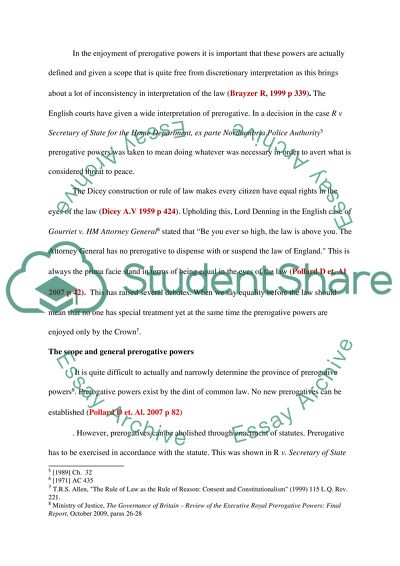Implication of Dicey's Definition on the Rule of Law Essay. Retrieved from https://studentshare.org/law/1440786-critically-evaluate-the-extent-to-which-the
Implication of Dicey'S Definition on the Rule of Law Essay. https://studentshare.org/law/1440786-critically-evaluate-the-extent-to-which-the.


